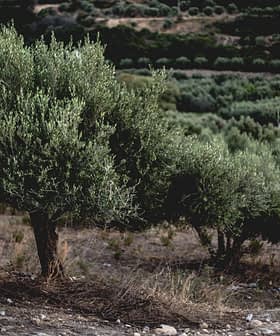The government of Pakistan has announced a new national action plan to improve yields by modernizing its agricultural sector.
New technology in the fields, processing facilities and aquaculture will be deployed to strengthen the related production chains.
There is a need to approach communities that are most affected due to climate change… Water scarcity lies in poor water governance in Pakistan.
Mechanization for harvesting and post-harvesting processes will also be provided for by the plan, which will include funds for germplasm resources and fishery science and promote trade and cooperation in agriculture.
According to the APP local news agency, the plan includes establishing foot-and-mouth disease-free zones, an intervention to improve livestock health.
See Also:Olive Farmers in Pakistan Seek Government Assistance to Scale ProductionThe official document cited by the local sources falls short of detailing the amount of funds destined for the plan’s specific actions.
Instead, it states that expected results for the agricultural sector in the next fiscal year should reach almost 4 percent growth compared to the previous year.
However, these results depend on a full recovery of cotton and wheat production and the availability of agrochemical products and seeds. Water scarcity is also cited as a potential drawback for yields.
Among the goals of the plan is to reduce costly food imports. According to ProPakistani News, the country is expected to import €8.7 billion in food products by the end of the current fiscal year. Currently, its foreign exchange reserves have dropped to €9.3 billion. Last year, Pakistan reported food imports of €8 billion.
One of the biggest concerns for the country’s food production capacity comes from extreme weather events.
Pakistan has been suffering a prolonged drought, aggravated by a record-breaking heatwave, which brought many areas of the country over 50 ºC.
Dozens of people died from excessive heat, and massive wildfires are sweeping across large areas.
The United Nations Environment Program (UNEP) has warned that such events are triggering food and energy shortages, which could impact Pakistan and India, affecting more than one billion people.
“Extreme heat has major repercussions for the agricultural sector,” said Sumalee Khosla, UNEP’s climate change adaptation finance expert. “Climate-related heat stress will increase drought and exacerbate water scarcity for irrigation.”
“This impacts farming communities and potentially creates further food security issues in affected countries,” she added.
In a workshop held in Islamabad, Pakistani officials and religious representatives agreed on the urgency to act against water scarcity.
The goal of the workshop was to identify areas of cooperation among different social, institutional and economic actors to reduce water waste and improve infrastructure. One of the most significant issues is the availability of clean drinking water.
According to Imran Khalid, director of governance and policy at the local branch of the World Wildlife Fund, “only one percent of wastewater is treated in Pakistan.”
“There is a need to approach communities that are most affected due to climate change,” he added. “We have to learn from the communities facing issues in real-time. We have to rely on indigenous practices in rural areas. Water scarcity lies in poor water governance in Pakistan.”
In this complex scenario, the current government is continuing the olive growing expansion projects devised by the previous administration. They fit into a broader push to boost edible oil production to reduce imports.
According to an olive researcher at the Barani Agricultural Research Institute (BARI), in the last 20 years, several federal and local administrations have supported the olive expansion projects, which expanded to approximately 12,000 hectares.
Muhammad Ramazan Anser said many more efforts are underway, as local entities have identified even more areas for future expansion of the olive groves.
The researcher has also emphasized the significance of the new agreements between farmers, public authorities and private companies, paving the way for new processing resources and adding value to the sector by building brands and marketing.
Such activities, he said, should also make it easier to attract young generations to agribusiness.
According to Anser, some of the expansion projects are developing drip irrigation. One of the goals is to start producing oil from five million wild olive trees in Balochistan, Khyber Pakhtunkhwa, Punjab, Sindh and Azad Kasmir.
The Pakistani authorities are currently working with the International Olive Council to support and foster the further expansion of the olive growing projects.
Know the Basics
Things to know about olive oil, from the Olive Oil Times Education Lab.
Extra virgin olive oil (EVOO) means that the oil is simply juice extracted from olives, without any industrial processing or additives. It must be bitter, fruity and pungent — and free of defects.
There are hundreds of olive varieties used to make oils with unique sensory profiles, just as many varieties of grapes are used in wines. An EVOO can be made with just one variety (monovarietal) or several (blend).
Extra virgin olive oil contains healthy phenolic compounds. Substituting a mere two tablespoons of EVOO per day in place of less healthy fats has been shown to improve health.
Producing high-quality extra virgin olive oil is an exceptionally difficult and costly task. Harvesting olives earlier retains more nutrients and extends shelf life, but the yield is far less than that of fully ripe olives that have lost much of their healthy compounds.








